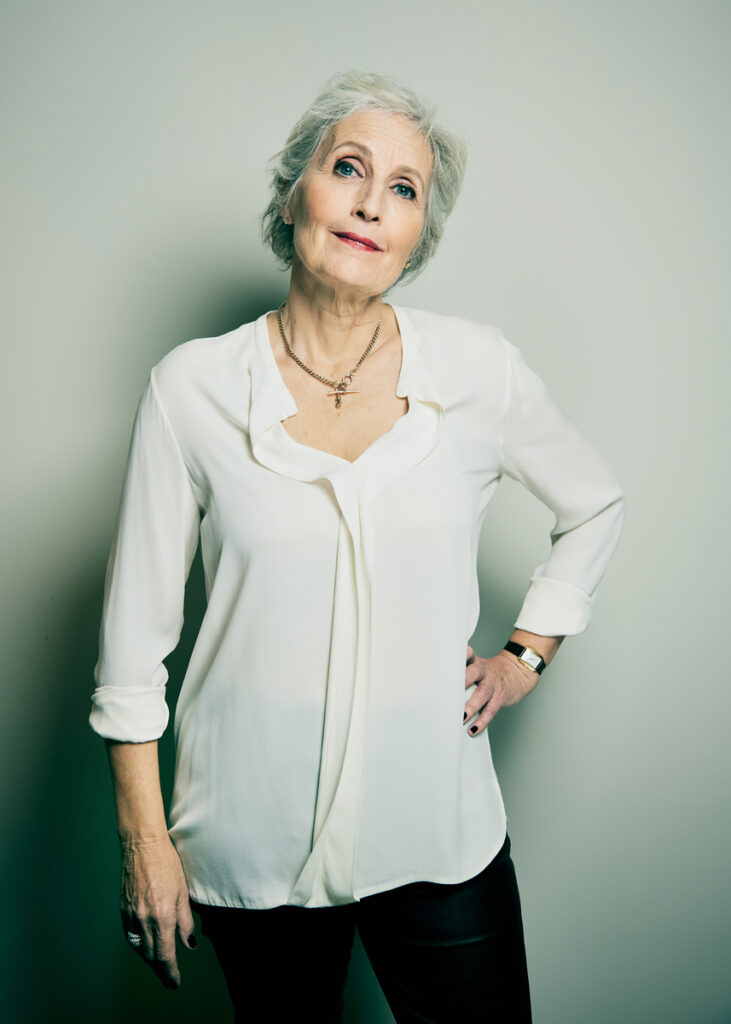 Although I’m more fortunate than most, my marriage has collapsed after 28 years. The doctor’s given my 94-year-old dad a terrible prognosis following pneumonia. I’m facing an empty nest, my two gorgeous daughters having just flown; struggling to finish writing a memoir; feuding with my two brothers over a family matter. Oh, and hobbling after what my pride calls a heliskiing accident in Bhutan but was actually just a dyspraxic-clown-style fall on a concrete floor! Even with a glass- half- full mindset, life is looking tough.
Although I’m more fortunate than most, my marriage has collapsed after 28 years. The doctor’s given my 94-year-old dad a terrible prognosis following pneumonia. I’m facing an empty nest, my two gorgeous daughters having just flown; struggling to finish writing a memoir; feuding with my two brothers over a family matter. Oh, and hobbling after what my pride calls a heliskiing accident in Bhutan but was actually just a dyspraxic-clown-style fall on a concrete floor! Even with a glass- half- full mindset, life is looking tough.
Exhausted and in crisis, I ask a shrink for antidepressants; but wisely he replies that he doesn’t have any pills to solve marital breakdown and sibling disputes, and suggests I sign up for a co-dependency programme instead. (I may still.) When Sheryl Close — the UK’s leading somatic experiencing therapist who’s helped me enormously with both my depressions and complex PTSD, a legacy of childhood challenges, by releasing trauma through bodywork —suggests the Hoffman Process, a week-long, condensed, experiential programme offering turbocharged healing, I’m sold. Its USP is that it helps participants let go of the past and envisage a new future.
As a journalist and separately as a personal-growth enthusiast —who’s struggled with Imposter Syndrome and regular visits from the sodding black dog— I’ve tried 35 plus therapies in my 64 years: from group analysis to individual psychotherapy, chanting to energy healing — and have also participated in (purportedly) life- transforming Californian seminars from EST to Insight, which I suspect may share similarities with Hoffman. But even though it’s been around since 1967 —in California, and founded in 1995 in the UK by Tim Laurence and his ex-wife and former Bond girl Serena Gordon — I hadn’t tried Hoffman or ‘the Process’, as it’s dubbed. Will it help?
At £3,700, it doesn’t come cheap — although there’s a DIY book, ‘You Can Change Your Life’, by Tim or a two-day online introduction for £195. The retreats reportedly attract students to superstars, from ages 20 to 80 plus. “It’s for anyone who’s ever had a parent!” explains Serena. This includes psychologist Oliver James to erstwhile spin doctor, the late Derek Draper; from Justin Bieber to Sienna Miller and Charles Spencer.
First there’s the challenging 45-page pre-Process questionnaire to address. My answers (according to the blurb) help ‘identify negative behaviours, moods and ways of thinking that developed unconsciously and were conditioned in childhood’, highlighting both my and my parents’ patterns —from addictions to attitudes to money, work and sex. Yes, I’m ‘controlling’, ‘critical’, ‘feel inferior’, ‘worrier’, ‘perfectionist’, ‘fear abandonment’. Tick, tick, tick.
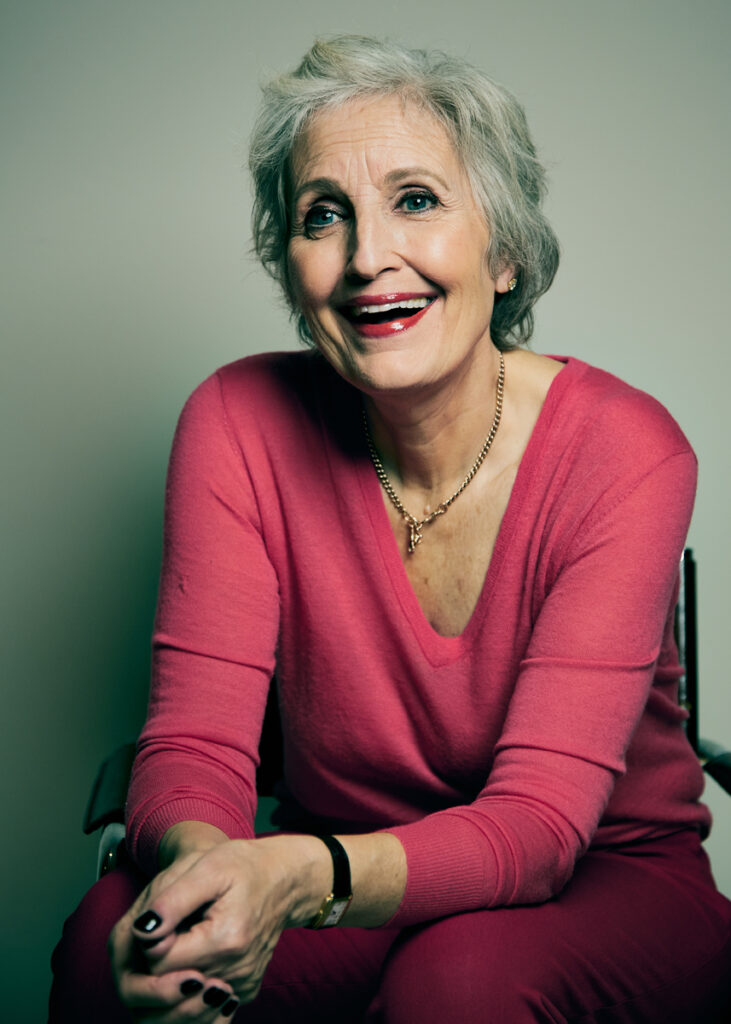 I focus on my bonkers family of origin as I answer. My late, beautiful, generous and amusing mother, Elisabeth —who was also a sociopath, compulsive liar, and Queen of Gaslighting: a posh criminal who defrauded wills and was a kleptomaniac, and murdered a dog and possibly a man. She was a woman who didn’t want a daughter (ours was a misogynistic family where only boys counted) who hit me with a Scholls wooden sandal, and sent me away alone to Africa for four weeks to stay with my godmum when I was five. There’s so much to say that I could write a book —so I am.
I focus on my bonkers family of origin as I answer. My late, beautiful, generous and amusing mother, Elisabeth —who was also a sociopath, compulsive liar, and Queen of Gaslighting: a posh criminal who defrauded wills and was a kleptomaniac, and murdered a dog and possibly a man. She was a woman who didn’t want a daughter (ours was a misogynistic family where only boys counted) who hit me with a Scholls wooden sandal, and sent me away alone to Africa for four weeks to stay with my godmum when I was five. There’s so much to say that I could write a book —so I am.
And what of my eccentric dad (who has, thankfully, now risen from the ‘dead’ like Lazarus)? He’s a charmer who liked to walk around his 18th century dining table in (one of his houses) his Georgian home in Kensington, impersonating Winston Churchill. He remarried a woman just nine years my senior; and after divorcing her, acquired progressively younger girlfriends (eventually twentysomethings). But I feel huge gratitude to him. He bought us up after our mother first walked out one Christmas when I was eleven —wanting to be with her lover.
What, the questionnaire asks, do I hope to gain from the Process? ‘To envisage a positive future,’ I write, ‘ find self-belief and self-love, learn to: trust more, be comfortable with my body, eventually have a healthy and happy relationship with another man.’ (Despite 36 years in recovery from addictions including an eating disorder, I’ve never fully overcome my body dysmorphia. )
When I arrive at Broughton Sanctuary, Yorkshire, (after feeling too fragile and deferring my start date by six months,) it’s to a part sixteenth century house with 17 bedrooms (some with four posters), a billiard room and Victorian glasshouse with rare plants. With classical marble busts, oil paintings and chandeliers. And photos of the Tempest (owners) family’s late friends, including Queen Mary and Mother Teresa.
I’m not going to disclose anything about the 23 other participants —not because we all sign Non- Disclosure Agreements, but more because the Process is about trust, feeling safe, and exposing ourselves. I’m feeling nervous. Vulnerable, grieving and scared of falling to pieces. I’m anxious about having to hand in my phone, one of my ‘crutches’, for a week (although there’s a landline for emergencies). I’m carrying photos of myself as a child and positive mementoes of my parents, as per the packing list. But I know little about what’s going to happen.
 The way the participants relate is different from the get-go. We’re encouraged not to discuss anything personal —even what we do and where we live. Without social descriptors and judgements, conversation is challenging —and freeing. “If you generally wear makeup, maybe try not using it this week,” suggests Serena, one of three facilitators, at registration. This is one of many masks to go.
The way the participants relate is different from the get-go. We’re encouraged not to discuss anything personal —even what we do and where we live. Without social descriptors and judgements, conversation is challenging —and freeing. “If you generally wear makeup, maybe try not using it this week,” suggests Serena, one of three facilitators, at registration. This is one of many masks to go.
We’re instructed to eat our first dinner in silence. I don’t drink alcohol, so it’s not a problem, but it’s banned for the week. Feeling off colour and shy, I feel relieved not to have to talk over (delicious) sweet potato curry and humus at a vast antique table. But soon rage surges in me. “What did the silence remind you of in childhood?” asks a facilitator, afterwards. Of course. Being sent to ‘Coventry’ by my mother as a punishment.
In the ensuing days, though, I look at loads of my habits, transforming many patterns. I follow guided visualisations aplenty in a drawing room with heaven-high curtains; join facilitated groups in the Music Room whilst lolling on ‘Diana Rigg’s’ chintzy armchair (from All Creatures Great and Small); and learn much about transference (projecting negative childhood parental experiences onto current relationships).
I also connect with my Quadrinity, a term coined by founder Bob Hoffman, specific to the Process and referring to the four aspects of ourselves: intellect, body, emotional child and spirit. I’m encouraged to do a ‘Quadrinity check -in’ meditation each day, listening to these four aspects of my being and ensuring that they’re ‘working together’ harmoniously. (Is communicating with my spiritual essence and spirit guide pseudoscientific, psychic even? I don’t mind.) It’s all an experiential rollercoaster —I’m exhausted and sleep nine hours a night —and by day three I’m desperate to leave. But I persist.
If you’d have told me I’d soon be bashing a cushion and benefiting from it, I’d have poo-pooed the idea. But I wallop a pillow with a baseball bat until I get blisters, and howl in pain at the breakdown of my marriage. Later I let go of aspects of my past and commit wholeheartedly to my future while sitting on sheepskins around a roaring fire in a Fire Temple, the sort of thing that normally brings out my inner cynic.
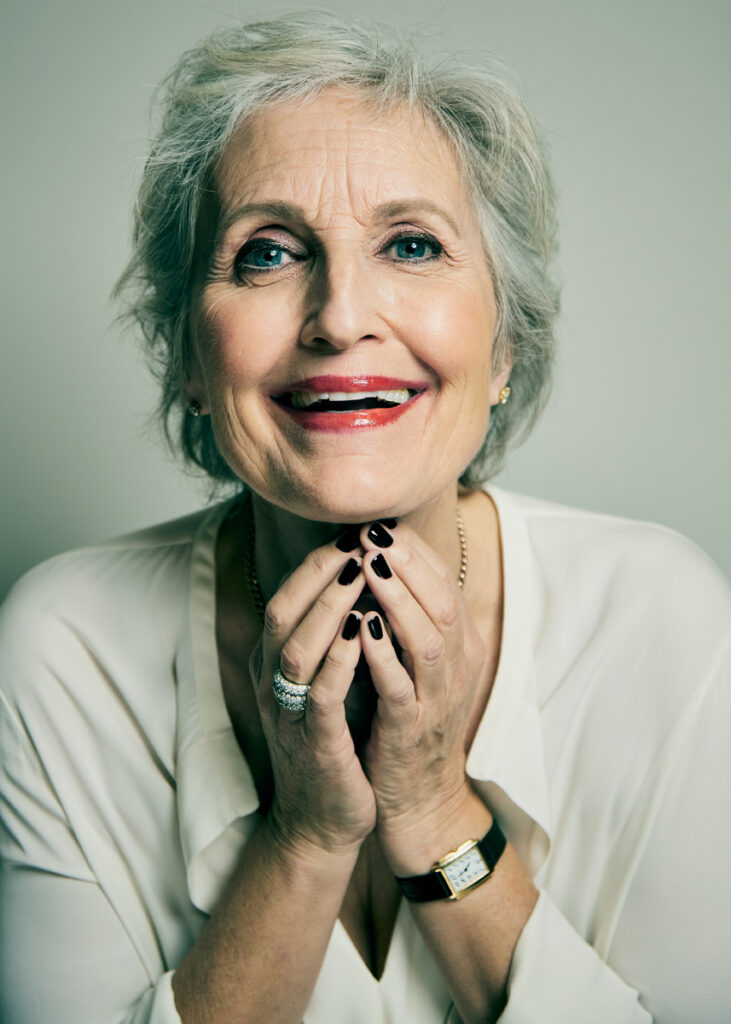 I also meet my Inner Critic (you know that voice that sometimes keeps you awake at night?) in an exercise in a contemporary wellbeing centre built in the walled garden. First, I have to imagine what my inner critic looks like — then it takes up temporary residence on my shoulder, like a demonic monster. I scribble down this creature’s nasty, belittling messages —’You’re not clever enough,’ ‘You’re too old’, ‘Call yourself a good writer?! Hah!’ —then destroy the paper with a shoe. I feel foolish but also connected to our common humanity, shared shame and suffering. It’s a cathartic session that disempowers the monster’s negative comments, allowing me to take back my power and control over my own voice.
I also meet my Inner Critic (you know that voice that sometimes keeps you awake at night?) in an exercise in a contemporary wellbeing centre built in the walled garden. First, I have to imagine what my inner critic looks like — then it takes up temporary residence on my shoulder, like a demonic monster. I scribble down this creature’s nasty, belittling messages —’You’re not clever enough,’ ‘You’re too old’, ‘Call yourself a good writer?! Hah!’ —then destroy the paper with a shoe. I feel foolish but also connected to our common humanity, shared shame and suffering. It’s a cathartic session that disempowers the monster’s negative comments, allowing me to take back my power and control over my own voice.
By day four I’m really into it. There’s lots of eye contact; plenty of ‘Hoffie hugs’ (only with permission, three-ish seconds, no back patting); and we always say ‘I’ rather than ‘you’ or ‘one’, deftly taking ownership of our feelings. “What would be a stretch, something you’d find difficult to do?” asks a facilitator. “To dance or sing in front of everyone,” I reply. Little do I know that that is the very next exercise. To my surprise, I love it. And so too acting in a skit. A new and playful part of my personality emerges.
Over the week, I drop my defences and soften. Among the most transformative exercises for me are the ones in which I imagine walking in my parents’ shoes, understanding their struggles, write letters of compassion to them and then ‘bury’ them at mock ‘funerals’ in the garden, honouring them and leaving them behind: knowing in my heart that henceforth I’ll be not what’s happened to me but rather who I decide to be. I cry buckets at their imaginary ‘graves’ —simply places that I’ve been drawn to on the estate —a winner for me, a champion non-blubber since childhood when my mother would say: ‘Stop crying or I’ll give you something to really cry about.’
At the end, I sit in solitude in Broughton Sanctuary’s family chapel, experiencing a rare and blissful peace: feeling love, loving and loveable. The incessant chatter in my mind turned to ‘off’. The Process has helped me meet my mind, body, spirit and emotional self; and find sanctuary, inner guidance and self-belief. It’s also been liberating being screen- free. When I get my phone back, I bin most of my emails.
I’ve tried many therapies and the Hoffman Process is a bona fide one; a brand to be trusted. I leave with a box of tools. There’s no magic wand inside. Just techniques and a lot of work to do to continue to break a lifetime of patterns. Ways to approach my emotional autobiography, identify where my behaviours and beliefs originate plus several cathartic exercises (writing, meditation, walking and dance) to enable me to let go of negative impacts and connect to the positive. In short, tools for forgiving my past, healing my present and transforming my future.
Since my return home, something has changed fundamentally. I’ve forgiven my parents and experience their positive legacy. A week later, I visit my father to tell him how much I love him. I’ve said it before and often; but a particular Process way of delivering the message is suggested — I’m not going to spoil the surprise by telling you —and he really seems to hear me, perhaps for the first time. Additionally, I haven’t been thinking or talking unkindly about my body, releasing myself from decades of body dysmorphia. And chums say I’ve become more vital and patient. I love to laugh and am trying not to take myself or life too seriously, and not to be so hard on myself.
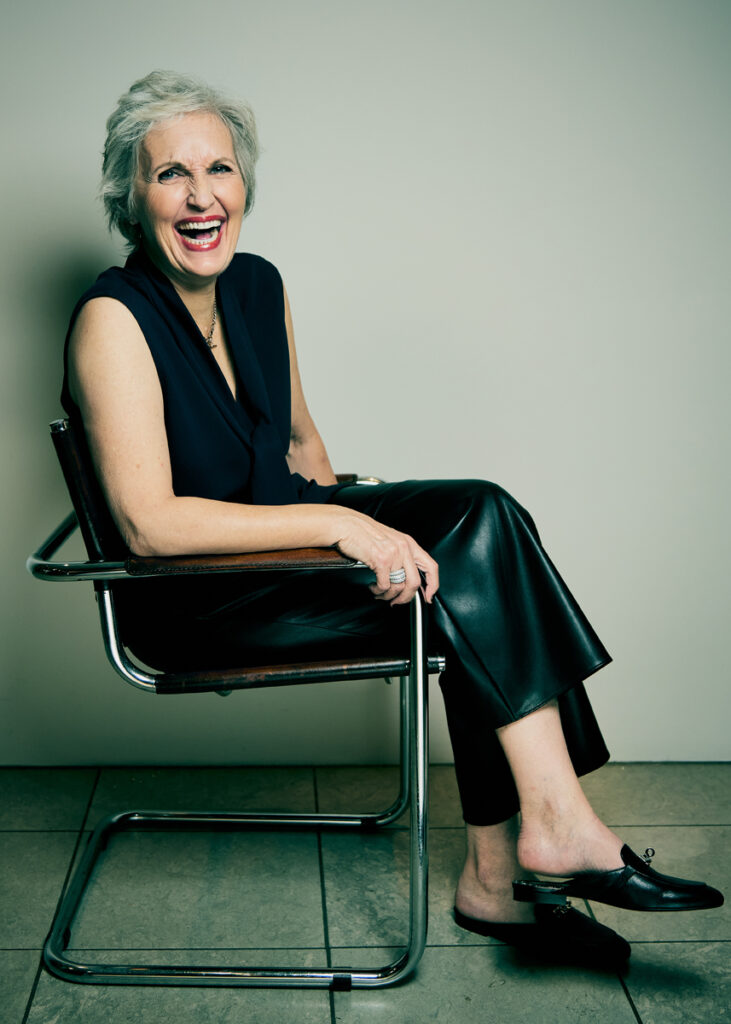 I’ve been doing daily Quadrinity checks, listening to the inspirational Hoffman app, journaling and writing gratitude and appreciation lists — feeling so blessed for my many fortunes. I spend more time in nature. And keep in regular contact with my wonderful new Process buddies, meeting socially and for optional monthly Process follow-up evenings for £20. I hope that I’m better at emotionally supporting and listening to my pals and daughters. And I’m succeeding, as is my husband, in our remaining friends, despite being in the middle of a divorce. (After all, it was a 35- year relationship.) My negative patterns had an expiry date and hopefully my suffering has given me a greater capacity to help people.
I’ve been doing daily Quadrinity checks, listening to the inspirational Hoffman app, journaling and writing gratitude and appreciation lists — feeling so blessed for my many fortunes. I spend more time in nature. And keep in regular contact with my wonderful new Process buddies, meeting socially and for optional monthly Process follow-up evenings for £20. I hope that I’m better at emotionally supporting and listening to my pals and daughters. And I’m succeeding, as is my husband, in our remaining friends, despite being in the middle of a divorce. (After all, it was a 35- year relationship.) My negative patterns had an expiry date and hopefully my suffering has given me a greater capacity to help people.
If I want change, I have to behave differently and stretch myself. I do a stand-up comedy course at Angel Comedy Club, then perform for seven minutes to 65 strangers: before the Process, I’d have rather eaten my own spleen with ketchup on it. I splash out on a Peak fitness club membership (at the Jumeirah Carlton Tower) for £500 a month so that I can go belly dancing and also swim in London’s biggest naturally- lit pool: that’s self-care.
I’ve also been overwhelmed by stresses and challenges. The dark monster, my inner critic, often returns to my shoulder, sabotaging me and fighting the world. It’s been hard developing new habits. I’m imperfect and often fall very far short. But I’ll keep at it.
Today a letter arrives in the post: from me to me. I wrote it during the Process and it was sent three months after my ‘graduation’. I’ve had a privileged life and lots of moments of happiness, joy and contentment. But there’s also been my dark side. The letter reminds me that I’m not the person of my ‘patterns’ who feels inadequate or overwhelmed. And that I can choose my negative past sometimes of loneliness, financial struggles, destructiveness, suicidal ideation, and fractured relationships. Or my new ‘road’ where I help others and am healthy, joyful, connected and surrounded by friends and loved ones. Prosperous, loving and a published author. And living as my authentic self.
To read Caroline’s article as it was published in You Magazine on November 17 2024, click here




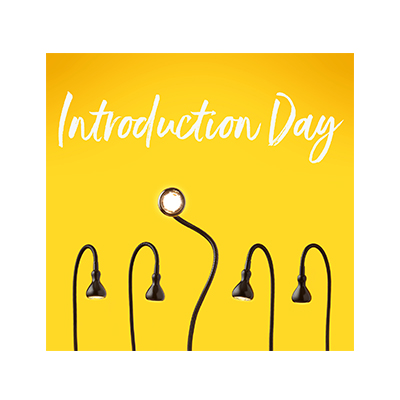

 Sign up to receive monthly newsletters from Hoffman
Sign up to receive monthly newsletters from Hoffman